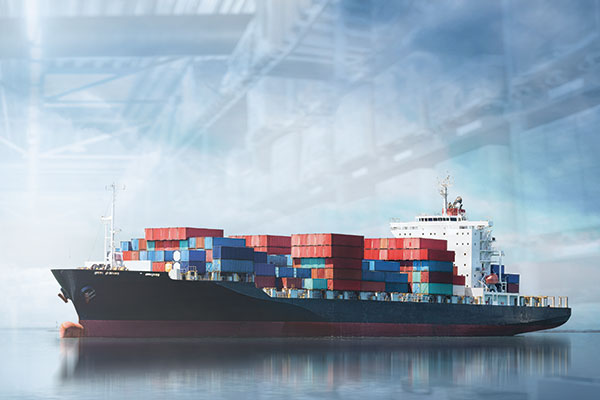The fight over maritime container space and rates charged for ocean shipping service, which has been steadily growing more fractious throughout 2021, has suddenly spilled into the halls of Congress.
With ocean cargo shippers clamoring over market imbalance, claiming carriers are wrongly abusing their market position, a bi-partisan duo in the U.S. House has introduced a bill that would, if passed, implement a punch-list of reforms aimed at rebalancing the shipper-carrier dynamic and requiring more equitable treatment for containers of imports and exports.
The Ocean Shipping Reform Act of 2021, introduced last August, would beef up the Federal Maritime Commission’s (FMC) role in ensuring fair trade practices by attempting to reign in excessive detention and demurrage charges, block maritime carriers from declining U.S. exports without good reason, require carriers to report their import and export tonnage each quarter, and give FMC broader authority to take up investigations of abuses by carriers. It also stipulates that carriers “adhere to minimum service standards that meet public interest.”
Brian Glick, founder and CEO of Chain.io – a cloud-based freight forwarder – is among the industry onlookers who contend these reforms are more likely to do little to fix the issues plaguing shipper-carrier relationships in the near-term. And longer-term, they could actually build more rigid walls between the two segments, rather than the bridges needed to truly solve the cascading crises that led to the current breakdown in the maritime shipping sector.
“The act’s pitfalls can’t be ignored,” says Glick, “and the maritime industry should take note of the need for greater use of data and integrations in solving the upheaval that’s been building over the past 18 months.”
Glick maintains that shippers need to align their TMS or ERP with independent data sources from ports, truckers, marine traffic, and AIS, as well as third-party sources.
“If this regulation moves forward and shippers haven’t done this sort of groundwork, they will not be able to tell if they’re actually benefiting from the improvements and regulatory environment,” he concludes.
SC
MR


Latest Supply Chain News
- How CPG brands can deliver on supplier diversity promises
- How S&OP provides the answer to in-demand products
- AI, virtual reality is bringing experiential learning into the modern age
- Humanoid robots’ place in an intralogistics smart robot strategy
- Tips for CIOs to overcome technology talent acquisition troubles
- More News
Latest Podcast

 Explore
Explore
Business Management News
- How CPG brands can deliver on supplier diversity promises
- How S&OP provides the answer to in-demand products
- AI, virtual reality is bringing experiential learning into the modern age
- Tips for CIOs to overcome technology talent acquisition troubles
- There is still work to do to achieve supply chain stability
- Blooming success: The vital role of S&OE in nurturing global supply chains
- More Business Management
Latest Business Management Resources

Subscribe

Supply Chain Management Review delivers the best industry content.

Editors’ Picks





